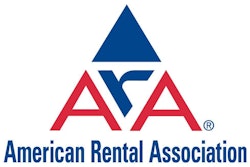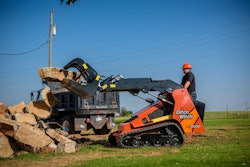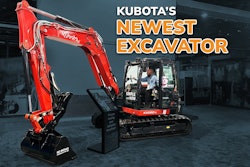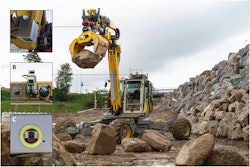
“The best executive is the one who has sense enough to pick good men to do what he wants done, and self-restraint enough to keep from meddling with them while they do it.” –Theodore Roosevelt
Conventional wisdom tells us a strong business needs a strong leader. A decisive and dynamic leader is the most important thing to make your company thrive, right? Wrong. A strong business needs strong employees.
Take a look at how you interact with and supervise your workers. Do you know if you’re helping or hurting? Check out this list of ways you may be damaging relationships with your crews that, in the long run, will stifle productivity and negatively impact the bottom line.
1. Exerting too much control
No one knows everything, and behaving as if you do will only make you the butt of many jokes. You’ve hired talented, smart workers – why not let them do their jobs? Giving them a level of autonomy will not only allow them to feel appreciated, the ability to make some decisions lets them know they are an important part of an interactive team. They’ll more easily stay engaged in their work, becoming more efficient and productive. Also, micromanaging is an expensive behavior. Not having to make all the decisions yourself will save an inordinate amount of time, allowing projects to move forward smoothly without costly delays.
2. Surrounding yourself with sycophants
Many firms in the construction industry are populated with friends and family members. If people who share a last name or school colors join you at the top, you may have inadvertently created a buffer of “yes men” between you and the rest of your employees. Not only could your employees resent you for hiring people with personal connections instead of promoting from within, you run the risk of becoming deaf to badly needed constructive criticism. Reach out to those employees you don’t connect with on a personal basis to gauge how you and your firm are actually perceived. When criticism does reach your ears, resist the urge to shoot the messenger and instead focus on the message.
3. Continuing useless or outdated practices
The Pareto Principle states 20 percent of your time produces 80 percent of your results. Yet, the larger companies grow, the more inclined we are to focus on and repeat actions that may not even impact the company’s bottom line. If you’re not conducting a periodic review to weed out antiquated policies and systems, you’re almost certainly forcing your employees to engage in unproductive, time-wasting behavior. Ask your workers if they are performing any low-value tasks that can be eliminated or replaced with a more efficient method. If your HR policies are outdated, they are likely cumbersome and may even convey a lack of trust in your employees. Your employees are adults—treat them as such.
4. Keeping a nose to the grindstone approach
While it’s important for your employees to get their work done, allowing them to work too hard for too long will cause them to disengage. That’s bad for them, and it’s bad for you. Working excessively will actually reduce productivity, and both you and your employees should be well versed in modern stress management techniques. Find the sweet spot that allows your employees to get the job done, but disconnect before burnout occurs.












